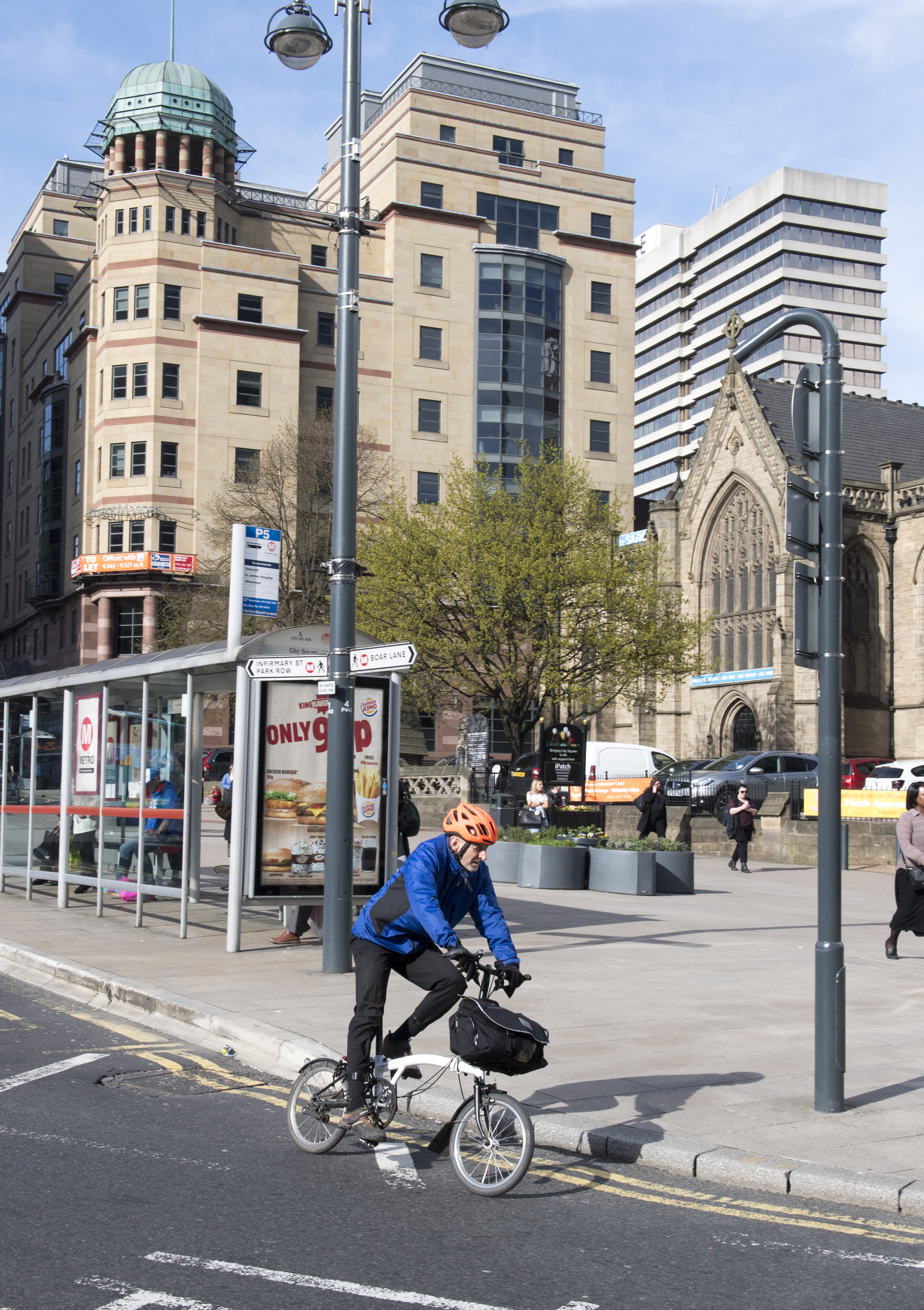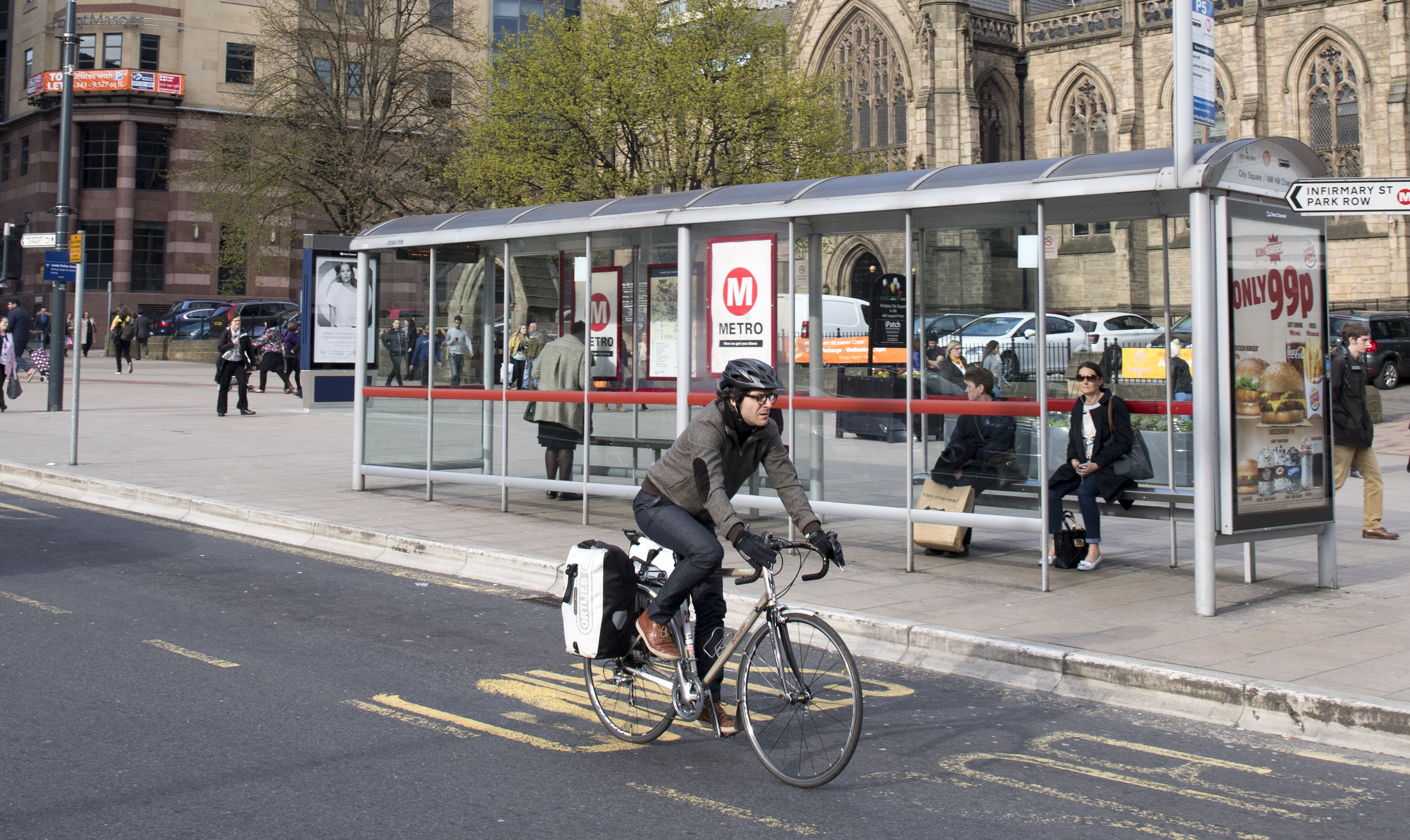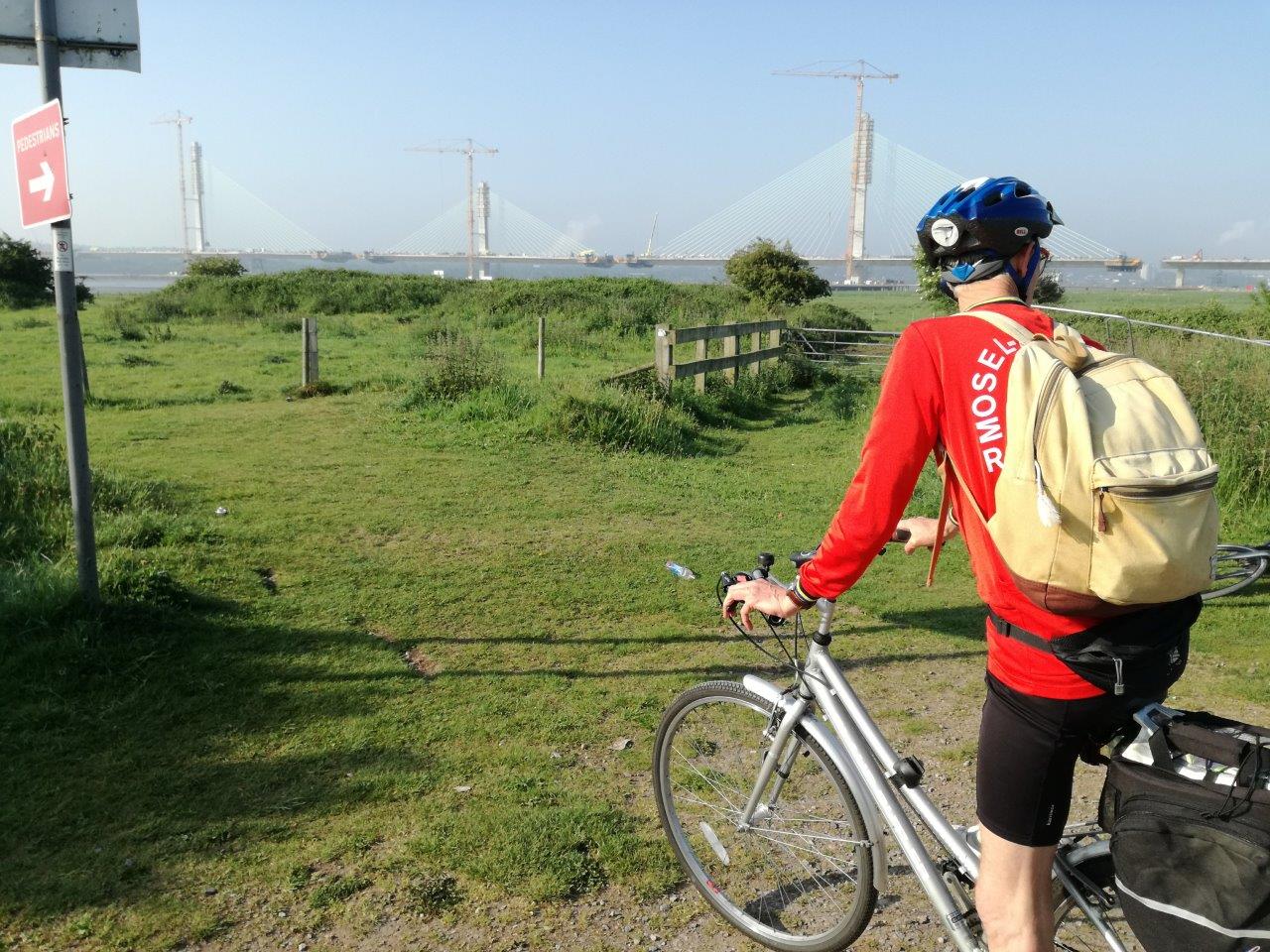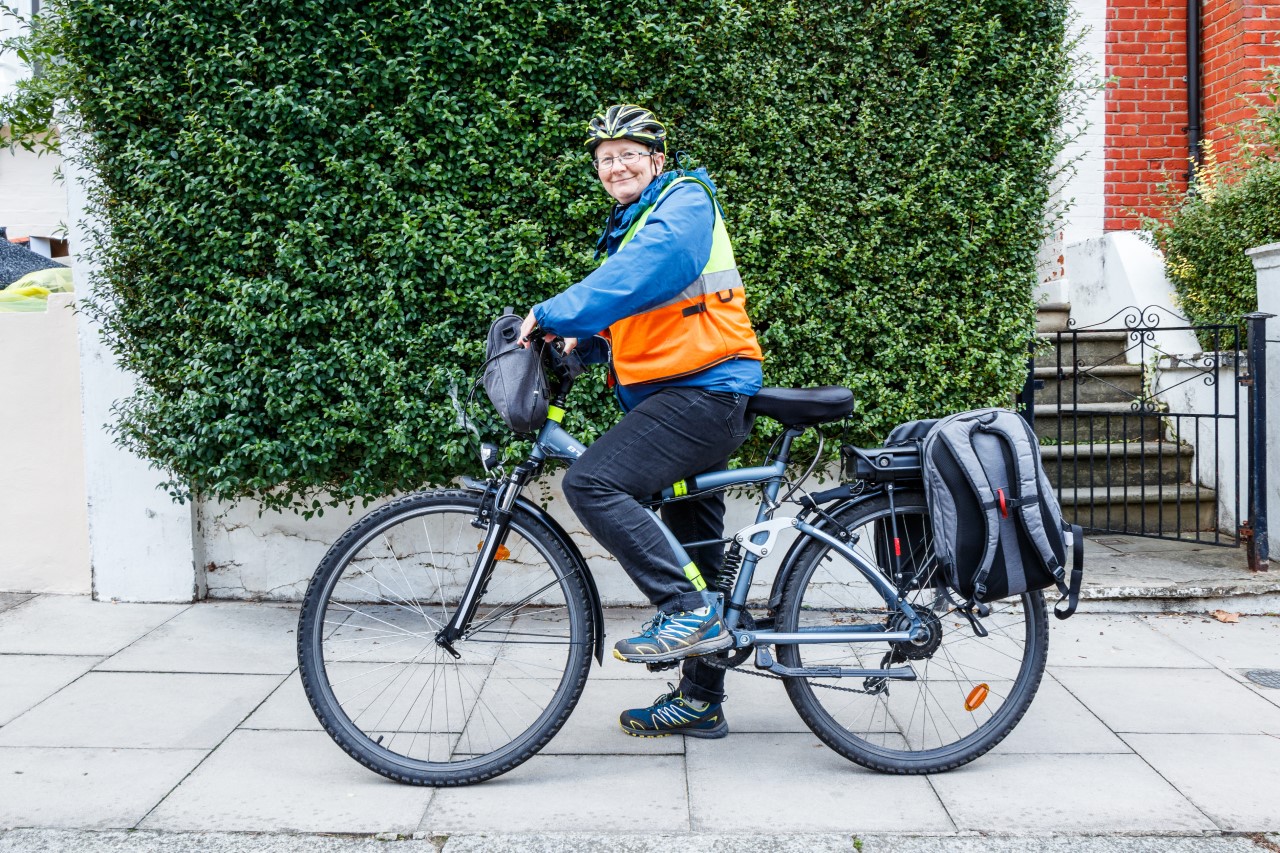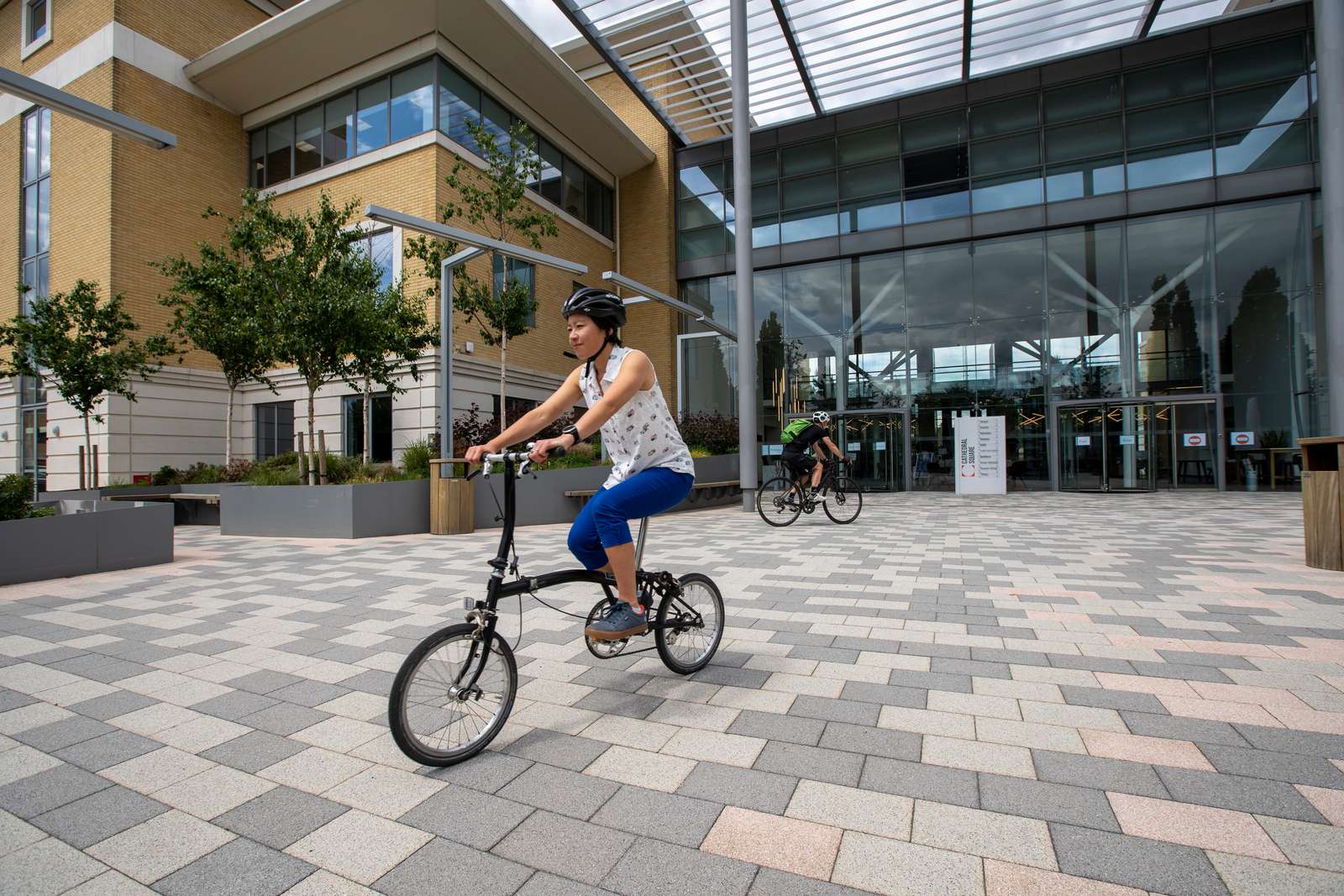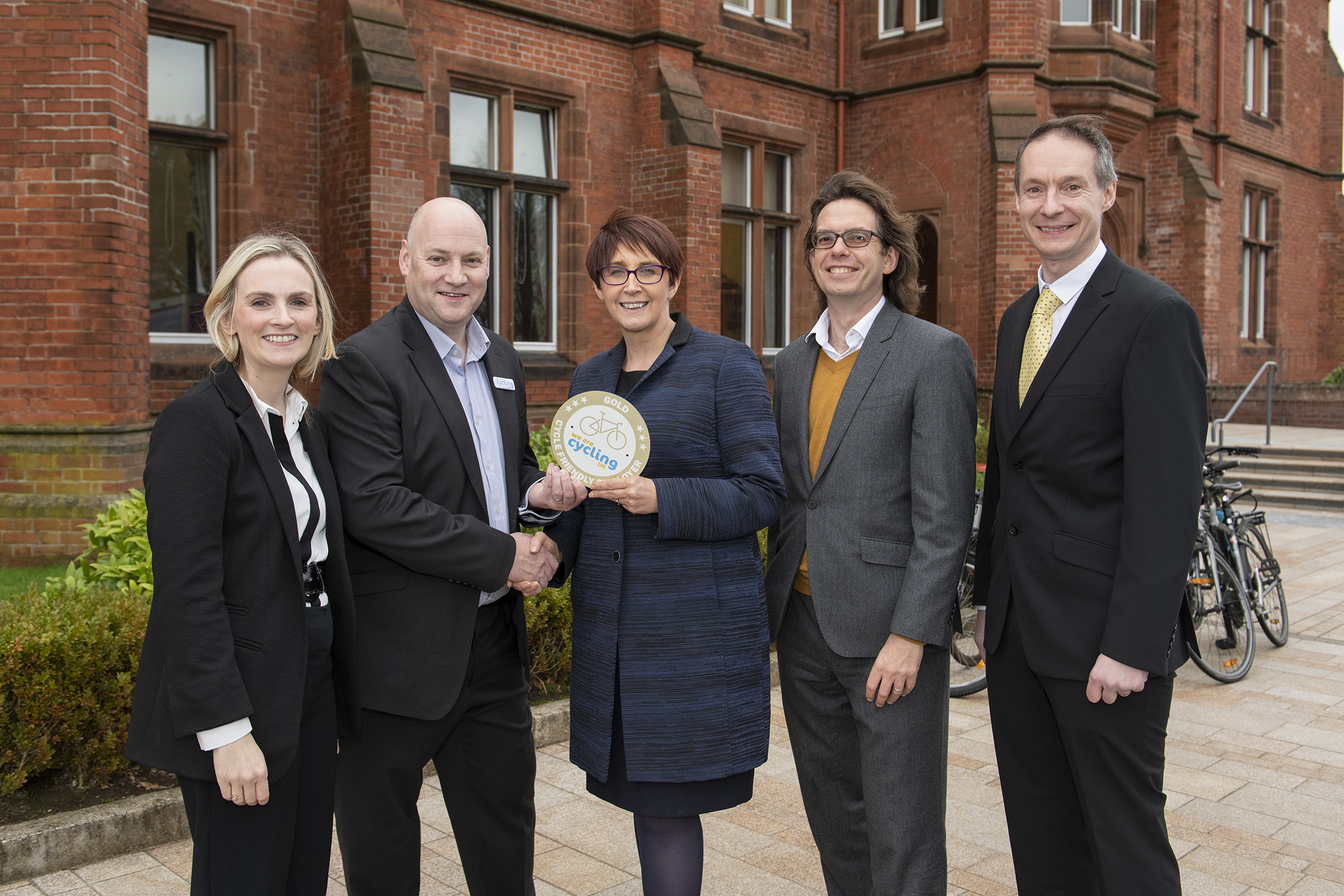How does the Cycle Friendly Employer scheme work?
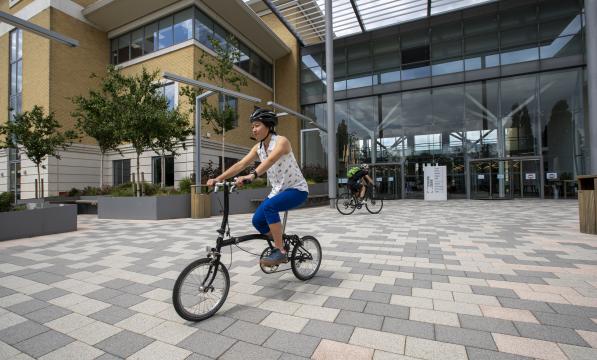
The Cycle Friendly Employer (CFE) accreditation scheme is a benchmark for workplace cycling. It allows businesses to not only demonstrate what they currently do for their staff, but to access advice, information and resources to improve provision for cycling at their workplace.
The scheme is delivered in 17 countries across Europe - including the UK - where thousands of employees have benefited from forward-thinking businesses who have already signed up to the scheme, to promote active travel in their workplaces.
James told us: "If it seems daunting, it need not be. The process of becoming accredited is actually really simple, and the minimum requirements for a company to meet the bronze standard are not as difficult to achieve as many first think."
To achieve bronze, a company is expected to have made a start on developing a cycle culture at the business. "The results may not be visible yet, but if the commitment is there to support staff to change their travel choices, that's the most important step".
How does it work?
The Cycle Friendly Employer accreditation will assess your business across six categories and give you a score, receiving a bronze, silver or gold rating.
These categories cover a range of criteria including; the facilities you have for your staff (this could include cycle parking), your communications and information for employees, incentives for staff to cycle, parking management, and events you host, enabling staff to cycle.
James explains: "Each measure is given a score, and for each category there is a minimum score that is required to achieve the accreditation. In category one for example, businesses are expected to have regular communication with their staff to promote cycling, and to take part in a national campaign (such as Bike Week or Cycle To Work day). Do these, and you will receive enough points for your business to pass in this category at a bronze level."
If it seems daunting, it need not be. The minimum requirements for a company to meet the bronze standard are not as difficult to achieve as many first think.
James Palser, CFE project manager
The table below shows the categories and what the minimum requirements are to pass each one for the bronze award.
Some of the categories don't apply to all businesses, so the scheme is tailored to your company to ensure fairness across all types of businesses. For example, if you don't have customers who are travelling to your premises then you won't be assessed against those criteria.
Category
Minimum measures required for bronze accreditation
CATEGORY 1: Information, communication and incentives for employees
-
Participation in a national or regional cycling campaign (for example Bike Week, Cycle to Work day)
-
Regular internal promotions on cycling for employees
CATEGORY 2: Coordination and organisation
-
Development and implementation of Alternative Transport Strategy that promotes cycling participation
CATEGORY 3: Service
-
Provision of bike maintenance equipment for staff to access
-
Periodical or seasonal Dr. Bike days for all staff to benefit from
CATEGORY 4: Facilities
For all companies:
- Changing facilities for staff, including lockers for clothing and bike equipment
For companies who have cycle parking only:
- Bike parking – a suitable number of spaces and standard of facilities that are available to staff
- Bike maintenance should be available either close to, or directly at the bike parking
CATEGORY 5: Parking management
- Any measure from the category
CATEGORY 6: Customer traffic
- Any measure from the category
What do I need to do next?
The first step to becoming accredited is to take our free self-assessment. This only takes around ten minutes to complete, and will tell you how your company stacks up.
A member of the team will then be in touch to discuss arranging an audit with you, and to let you know what you need to do to provide the evidence we need to see for your accreditation.
It's that simple.
Once a business has been accredited as bronze, Cycling UK delivers a detailed report that outlines not just what you have already achieved, but will also outline how other measures can be met so you can move on up to silver. We'll provide a detailed plan of how to deliver this, in addition to the bespoke support you require to ensure more of your colleagues cycle to work.
If you have any questions about the accreditation please don't hesitate to get in touch with James and the team.

